I was born in 1944, in the final year of the Second World War (WWII). In my early childhood I lived in its shadow. We were poor, everybody we knew was poor. Food was scarce and some items were rationed until 1954. We children were taught that a famous victory had been won by the Allies, defeating the warmonger fascist Nazi Hitler and thus establishing world peace.
In recent months, however, I have been driven to re-examine that proposition. Firstly, I found a copy on an internet archive of AJP Taylor’s Origins of the Second World War, which when published in 1961 caused a rumpus.
Taylor's thesis was that Hitler was not the demoniacal figure of popular imagination but in foreign affairs a normal German leader. Citing Fritz Fischer, he argued that the foreign policy of Nazi Germany was the same as those of the Weimar Republic and the German empire. Moreover, in a partial break with his view of German history advocated in the Course of German History, he argued that Hitler was not just a mainstream German leader but also a mainstream Western leader. As a normal Western leader, Hitler was no better or worse than Gustav Streseman, Neville Chamberlain or Edouard Daladier. His argument was that Hitler wished to make Germany the strongest power in Europe but he did not want or plan war. The outbreak of war in 1939 was an unfortunate accident caused by mistakes on everyone's part and was not a part of Hitler's plan. (Wikipedia).
That was the wake up call. Driven on by curiosity, I next learned that Hitler had been an admirer of Britain and its empire, and that the UK had bombed civilian targets in the Ruhr and Berlin in 1940 before Hitler launched his Blitz on London in retaliation. I resisted for a while but ultimately my curiosity proved too great and I started to delve into a history of long before I was born to find out the truth of the matter.
What was the main cause of WWII? Arguably, it was the legacy of the First World War (WWI). I don’t intend to delve back beyond that, but we can start midway in 1916. From my brief take I understand that in that year the situation was that the war was pretty much in a state of stalemate, Germany having made several territorial gains. The battle of Verdun was fought from 21 February to 18 December 1916 on the Western Front in France, and was to be the longest of WWI. It was estimated that the French suffered 377,231 casualties and the Germans 337,000, a total of 714,231 and an average of 70,000 a month.
Both participants were tiring of the conflict, and in a little known communication on August 18 1916, the chancellor of Imperial Germany sent a secret cable to his ambassador in Washington. He and his Kaiser were desperate to end the war and ready for compromise.
"We are happy to accept a mediation by the President [Wilson] to start peace negotiations among the belligerents who want to bring this about. Please strongly encourage the President's activities in this regard."
The German mediation request was unconditional, that is to say, they were prepared to give up overrun territories which included Belgium and revert to the status quo ante bellum. For more than five months, from August 1916 until the end of January 1917, leaders from Germany, Britain, and the United States secretly struggled to end the Great War. They did so far out of public sight, one reason their battle is still little understood today.
Even in January 1917, urged to look to the readiness of the armed forces, Woodrow Wilson, who had just been re-elected with the slogan “He kept us out of war,” turned sharply on his adviser. “There will be no war,” the president said. “This country does not intend to become involved in this war.” Until April 1917 the United States in its 141-year history had never sent a single soldier or sailor to fight on the continent of Europe. During the next year and a half, the United States, then a country of about one hundred million people, would send two million of them across the Atlantic Ocean to a war which would completely alter its course, ultimately leading to the Allied victory.
Why did he change his mind?
Germany, it appears, had lost confidence in the discussions which were leading nowhere and had restarted submarine warfare in the North Atlantic in February. On April 2, 1917, President Woodrow Wilson went before a joint session of Congress to request a declaration of war against Germany. Wilson cited Germany’s violation of its pledge to suspend the submarine warfare in the North Atlantic and the Mediterranean, as well as its attempts to entice Mexico into an alliance against the United States, as his reasons. This latter was a blatant lie, as we shall see: the proposal was to engage Mexico in the event that the US entered the war and so in the present situation was no threat at all. On April 4, 1917, the U.S. Senate voted in support of the measure to declare war on Germany.
Threat of the war extending to Central America had been set out in the Zimmerman Telegram. This was sent by the German Foreign Minister Arthur Zimmermann to the German ambassador in Mexico City, suggesting a German-Mexican alliance in case of war between Germany and the United States. It had been intercepted and deciphered in London. It was given full prominence in the Jew-controlled New York Times.
Here is the translated text from the telegram.
Later that year, on 2 November 1917, Arthur Balfour, the British Foreign Secretary sent a letter to Lord Rothschild, a leader of the British Jewish community, for transmission to the Zionist Federation of Great Britain and Ireland, announcing British support for the establishment of a "national home for the Jewish people" in Palestine, which was not even under British rule, being a part of the Ottoman Empire.
And why did he do that?
The explanation which has been put forward is that it was pay back for the cooperation of Zionists in Germany who betrayed the text of the Zimmermann Telegram to the British, who decoded it and used it as the means of persuading President Woodrow Wilson through American Jews to go to war with Germany. This has been dismissed as a hoax: I shall merely set out the evidence that I have found and you may decide for yourselves.
1. In 1936 Samuel Landman wrote Great Britain, the Jews, and Palestine. He had been Hon. Secretary of the Joint Zionist Council of the UK in 1912, and from 1917 to 1922 he was Solicitor and Secretary to the Zionist Organisation. So he was in the thick of things when the matters under consideration were ongoing. This is what he wrote:
2. On a subsequent page he writes:
In other words, the substance of the “hoax” had been widely disseminated in the Jewish press at the time. This, probably in Hebrew, would need to be found and translated to confirm.
https://archive.org/details/great-britain-the-jews-and-palestine-by-samuel-landman-1936/page/n1/mode/2up
3. The German population largely believed that Germany had lost the war because of this Jewish betrayal, and that was one of the reasons for their development of hatred for them. In his book Through Thirty Years, Henry Wickham Steed, editor of The Times from 1919 to 1922, again around that critical time, had this to say:
4. Nahum Sokolow, prominent Zionist, the fifth President of the World Zionist Organisation and co-author of the Balfour Declaration said that "the feeling against the Jews in Germany is due to the fact that they realized that this great defeat was brought about by our intercession and bringing the United States into the war against them”.
5. In a speech in 1961, Benjamin Freedman, a Jew, an American businessman and vocal anti-Zionist said “I am going to be brief because this is a long story, but I have all the documents to prove any statement that I make if anyone here is curious, or doesn't believe what I'm saying is at all possible -- the Zionists in London went to the British war cabinet and they said: “Look here. You can yet win this war. You don't have to give up. You don't have to accept the negotiated peace offered to you now by Germany. You can win this war if the United States will come in as your ally.” He also claimed that President Wilson was under blackmail over an affair he had when he was a Princeton professor.
https://highlanderjuan.com/wp-content/uploads/2019/06/Benjamin-H-Freedman-Speech-at-the-Willard-Hotel-1961.pdf
6. In a statement to Parliament in 1922 Winston Churchill, then colonial secretary, said that it should not be thought that, in the Balfour Declaration, Britain gave something to the Jews for which she received nothing in return.
7. It was reported that Prime Minister Lloyd George had said that he issued the Balfour Declaration “in gratitude for contributions to wartime acetone production” (!)
Well if not that, then what? They must have been repaying some very big favour indeed, and setting aside the evidence, I feel that merely the absence of any other explanation is proof enough: I think the deniers have to come up with another reason for that extraordinary commitment.
In 1903, the sixth Zionist congress had taken place in Basel. It is referred to as the “Uganda” congress because it dealt with an offer by the British government to make available land in Uganda for Jewish settlement. The offer was seriously considered, and was in fact approved by a majority of the delegates, but ultimately the offer was not taken up. Some saw it as a step along the road to a Jewish settlement in Palestine.
The future world war. Must have been a time traveller, huh?
And so the war ground on and eventually a settlement was signed, the Treaty of Versailles. The final version of the Treaty of Versailles was presented to a German delegation on May 7, 1919, and signed, after their remonstrances, on June 28. It was bitterly criticized by the Germans, who complained that it had been “dictated” to them, and that it demanded intolerable sacrifices that would wreck their economy. But the alternative was unthinkable, the nation would have starved to death.
As the most important treaty of WWI, it ended the state of war between Germany and most of the Allied Powers. The treaty required Germany to disarm, make territorial concessions, extradite alleged war criminals, agree to Kaiser Wilhelm being put on trial, recognise the independence of states whose territory had previously been part of the German Empire, and pay reparations. A critical and controversial provision in the treaty was: "The Allied and Associated Governments affirm and Germany accepts the responsibility of Germany and her allies for causing all the loss and damage to which the Allied and Associated Governments and their nationals have been subjected as a consequence of the war imposed upon them by the aggression of Germany and her allies." Some critics including John Maynard Keynes declared the treaty too harsh, styling it as a “Carthaginian peace" (the war between Rome and Carthage had ended in with the total destruction of Carthage), and saying the reparations were excessive and counterproductive.
The winner declared the loser to blame and demanded reparations to pay for war damage. A commission that assessed the losses incurred by the civilian population set an amount of $33 billion in 1921. Although economists at the time declared that such a huge sum could never be collected without upsetting international finances, the Allies insisted that Germany be made to pay, and the treaty permitted them to take punitive actions if Germany fell behind in its payments. Much of it seems to have ended up in the USA’s pocket as war debt repayment. In the years after it was ratified, the Treaty of Versailles was revised and altered, mostly in Germany’s favour. Reparations payment ended in 1932. The French felt swindled and the Germans felt robbed.
The extent to which reparations were responsible is uncertain, but Germany’s economy was certainly wrecked for a while. Hyperinflation took off between 1921 and 1923. The exchange value of the mark fell from 320 marks per dollar in mid 1922 to 7,400 marks by December 1922, and by November 1923, one US dollar was worth 4,210,500,000,000 marks. A loaf of bread in Berlin that cost around 160 marks at the end of 1922 cost 200,000,000,000 or 200 billion marks by late 1923. By 1924 the currency had stabilised and German reparations payments which had stalled began again. Eventually, some debts were reinstated to compensate creditors partially for the catastrophic reduction in the value of debts that had been quoted in paper marks before the hyperinflation. A decree of 1925 reinstated some mortgages at 25% of face value in the new currency, effectively 25,000,000,000 times their value in the old paper marks.
So now it’s time finally to whittle down to the true cause of WWII. Firstly I said it was the legacy of WWI. Now we narrow it down to the terms of the Versailles Treaty, and within it that which I deduce to have been the principal cause. Ultimately the most troublesome facet is that it stripped Germany of 65,000 km2 of territory and 7 million people, mostly Germans, adding the territories to existing countries and creating new ones: such an obvious recipe for disaster.
Let’s see how it worked out. Below, 1900; below that, 1920 (after Versailles). The main differences between those years such as were imposed on Germany were the demolition of Austro-Hungary and the invention of new states: most critically Czechoslovakia and Poland. Czechoslovakia was carved out of old Austro-Hungary, itself an unstable compilation of two former regions thereof which ultimately would break apart, and reinvented Poland, which had earlier disappeared from the map in 1785, partly from Germany.
The population and territory of Germany was reduced by about 10% by the treaty, the actual territorial changes are shown below. In the west, Alsace and Lorraine were returned to France, and the Saarland was placed under the supervision of the League of Nations until 1935. Further north, small areas were given to Belgium, and, after a plebiscite, northern Schleswig was returned to Denmark.
It was the changes in the east which would ultimately cause trouble. Poland was given most of formerly German West Prussia and Posnan (Posen), a corridor to the Baltic Sea (which separated East Prussia from the rest of Germany), and given part of Upper Silesia after a plebiscite. Gdansk (Danzig) was declared a free city. All Germany’s overseas colonies in China, in the Pacific, and in Africa were taken over by Britain, France, Japan and other Allied nations.
Why were these changes imposed on Germany? Look again at the map of Germany’s territorial losses. They practically complete its encirclement with essentially hostile and semi-hostile states, and the insertion of Czechoslovakia puts a wedge between it and Austria, making integration with Germany less feasible. But the underlying weakness of this plan was that many of these barrier territories were formerly parts of Germany populated by Germans, and so their populations, once they were to see the reintegration of the Saarland in 1935, began to have ambitions of their own.
Back in 1923 Germany had been in danger of being further broken up. The French invaded Germany, occupied the Ruhr district and seized several German towns in the Rhineland. This was a flagrant breach of international law and the Germans could not effectively defend themselves, as they had been already disarmed under the provisions of the Versailles Treaty. In the south a Bavarian independence movement was gaining support.
It was against this background while in jail that Hitler wrote the first volume of Mein Kampf. On April 1st, 1924, he began to serve a five year sentence in the Fortress of Landsberg am Lech, following the verdict of the Munich People's Court. Along with the celebrated war Commander Ludendorff, he had been demonstrating against the growing movement for Bavarian independence. A meeting had been announced to take place in the Bürgerbräu Keller. The Bavarian patriotic societies were gathered there, and the Prime Minister, Dr von Kahr, started to read his official pronunciamento, which practically amounted to a proclamation of Bavarian independence and secession from the Republic. While von Kahr was speaking Hitler entered the hall, followed by Ludendorff, and the meeting was broken up.
The next day his followers took to the street for the purpose of making a mass demonstration in favour of national union. They marched in massed formation, led by Hitler and Ludendorff. As they reached one of the central squares of the city the army opened fire on them. Sixteen of the marchers were instantly killed, and two died of their wounds. Several others were wounded also. Hitler fell on the pavement and broke a collar-bone. Ludendorff marched straight up to the soldiers who were firing from the barricade, but not a man dared draw a trigger on his old Commander. Hitler was released after 13 months.
Mein Kampf is a mishmash of autobiography and politics. For example Hitler tells us about his early days growing up in Austria, and how his father was determined that he should become a government official, but that he wanted to be a painter, an artist. But I have read it to save you the trouble and will summarise his weltanschauung as it comes across in volume one. It is heavily influenced by his early times in Vienna and initially the situation in Austria where he formed his political opinions, before he moved on to Germany, and some more general statements stand out.
That Germany and Ostererreich (the east German state, Austria) should be united.
That two perils present a terrible significance for the existence of the German people, namely Marxism and Judaism.
That the Social Democratic Press in Austria was predominantly controlled by Jews.
That Marxism is predominantly a Jewish doctrine.
That England was “a land of classic democracy”.
That the British parliamentary chambers were rooted in its history which meant that “the House of Lords and the House of Commons temples (were) dedicated to the glory of the nation”.
That “The dignified way in which the British House of Commons fulfilled its function impressed me greatly”, but that “these considerations furnished the very motives of my hostility to the Austrian Parliament.”
That “In matters that were of critical concern for the German element, the Social-Democrats always took up an anti-German stand because they were afraid of losing their followers among the other national groups” and “could no longer be considered as a German Party”.
That “The parliamentary principle of vesting legislative power in the decision of the majority rejects the authority of the individual and puts a numerical quota of anonymous heads in its place”.
That the “parliamentary principle” is “ill-conceived”, and that “It is quite evident that only to a tiny degree are public wishes or public necessities satisfied by the manner in which an election takes place; for everybody who properly estimates the political intelligence of the masses can easily see that this is not sufficiently developed to enable them to form general political judgments on their own account, or to select the men who might be competent to carry out their ideas in practice”.
That “Public opinion….results from the manner in which public matters have been presented to the people through an overwhelmingly impressive and persistent system of 'information'“.
That “By far the most effective branch of political education, which in this connection is best expressed by the word 'propaganda', is carried on by the Press. The Press is the chief means employed in the process of political 'enlightenment’….. This educational activity, however, is not in the hands of the State but in the clutches of powers which are partly of a very inferior character”, and that “It took the Press only a few days to transform some ridiculously trivial matter into an issue of national importance, while vital problems were completely ignored or filched and hidden away from public attention”.
That “There is a better chance of seeing a camel pass through the eye of a needle than of seeing a really great man 'discovered' through an election”, and that “As a contrast to this kind of democracy we have the German democracy, which is a true democracy; for here the leader is freely chosen and is obliged to accept full responsibility for all his actions and omissions”.
That “Human rights are above the rights of the State.”
You may feel that he has eminently described the situation in the west at the present day.
Hitler then describes his desire to relocate to Munich in 1912 and work as an architect, and work toward its union with Austria.
“Because my heart was always with the German Empire and not with the Austrian Monarchy, the hour of Austria's dissolution as a State appeared to me only as the first step towards the emancipation of the German nation. All these considerations intensified my yearning to depart for that country for which my heart had been secretly longing since the days of my youth”.
Hitler goes on to consider the fact that the population of Germany was increasing by 900,000 per year and how to deal with it. He gravitates towards either “a policy of territorial expansion or a colonial and commercial policy. Both policies were taken into consideration, examined, recommended and rejected, from various standpoints, with the result that the second alternative was finally adopted. The sounder alternative, however, was undoubtedly the first.”
Lebensraum. He concludes:
The principle of acquiring new territory, on which the surplus population could be settled, has many advantages to recommend it, especially if we take the future as well as the present into account”, and that ruling out acquisition of colonies, “Such a territorial policy, however, cannot find its fulfilment in the Cameroons but almost exclusively here in Europe…. If new territory were to be acquired in Europe it must have been mainly at Russia's cost….For such a policy, however, there was only one possible ally in Europe. That was England. Only by alliance with England was it possible to safeguard the rear of the new German crusade….There remained still another alternative…. This was: industry and world trade, naval power and colonies….Once we had taken this road, England was bound to be our enemy at some time or other to come”.
So this was the policy adopted at the time. We can see parallels with China today, and the reaction of the USA to its successes.
“Since a commercial and industrial policy had been adopted, no motive was left for waging war against Russia”.
Well, that opinion was to change, of course.
Now we learn more about Hitler’s opinion of the Jews.
“People who can sneak their way, like parasites, into the human body politic and make others work for them under various pretences can form a State without possessing any definite delimited territory. This is chiefly applicable to that parasitic nation which, particularly at the present time preys upon the honest portion of mankind; I mean the Jews. The Jewish State has never been delimited in space. It has been spread all over the world, without any frontiers whatsoever, and has always been constituted from the membership of one race exclusively. That is why the Jews have always formed a State within the State. One of the most ingenious tricks ever devised has been that of sailing the Jewish ship-of-state under the flag of Religion and thus securing that tolerance which Aryans are always ready to grant to different religious faiths”.
On August 3, 1914, Hitler joined a Bavarian regiment and put on the uniform that he would wear for six years. Emerging from the army his thoughts turned to the formation of a new political party.
“On such principles the attitude of the State towards capital would be comparatively simple and clear. Its only object would be to make sure that capital remained subservient to the State and did not allocate to itself the right to dominate national interests. Thus it could confine its activities within the two following limits: on the one side, to assure a vital and independent system of national economy and, on the other, to safeguard the social rights of the workers. Previously I did not recognize with adequate clearness the difference between capital which is purely the product of creative labour and the existence and nature of capital which is exclusively the result of financial speculation”.
Now I have virtually no understanding of economics and I will leave the judgement to others better equipped. but it does seem to me that Hitler’s distinction between essentially productive and non-productive finances was far ahead of its time, has implications for today and is exemplified by the difference between the US and Chinese economies. Emerging from the Great Depression, in 1933 Hitler aimed for full employment through a massive expansion of public works (the Reinhardt Programme) building hospitals, schools and public buildings such as the 1936 Olympic stadium. Employment in construction grew to 2 million. The introduction of the autobahn system, an early recognition of the importance of infrastructure for the age of road traffic that did not surface in the UK for another 30 years, created 80,000 jobs. The Volkswagen people’s car was introduced in 1937. Rearmament completed the task.
He devotes a chapter on his opinions regarding the supremacy of white, particularly of the “Aryan” stock, and alleged catastrophic results of miscegenation. He states that “All that we admire in the world to-day, its science, its art, its technical developments and discoveries, are the products of the creative activities of a few peoples, and it may be true that their first beginnings in must be attributed to one race”, failing to recognise the unique achievements (for example) of Chinese and Arabic peoples. He offers a counterintuitive compliment to the Jews:
“The Jew offers the most striking contrast to the Aryan. There is probably no other people in the world who have so developed the instinct of self-preservation as the so-called 'chosen' people. The best proof of this statement is found in the simple fact that this race still exists. Where can another people be found that in the course of the last two thousand years has undergone so few changes in mental outlook and character as the Jewish people? And yet what other people has taken such a constant part in the great revolutions? But even after having passed through the most gigantic catastrophes that have overwhelmed mankind, the Jews remain the same as ever. What an infinitely tenacious will-to-live, to preserve one's kind, is demonstrated by that fact!”
But he goes on to say:
“For, though among the Jews the instinct of self-preservation has not been weaker but has been much stronger than among other peoples, and though the impression may easily be created that the intellectual powers of the Jew are at least equal to those of other races, the Jews completely lack the most essential prerequisite of a cultural people, namely the idealistic spirit. With the Jewish people the readiness for sacrifice does not extend beyond the simple instinct of individual preservation. If the Jews were the only people in the world they would be wallowing in filth and mire and would exploit one another and try to exterminate one another in a bitter struggle, except in so far as their utter lack of the ideal of sacrifice, which shows itself in their cowardly spirit, would prevent this struggle from developing”.
Hitler finally described how while still in uniform he found and joined the new German Labour Party which consisted of only a handful of people, and transformed it into the Nationalsozialistische Deutsche Arbeiterpartei (NSDAP; National Socialist German Workers' Party). Meetings grew in numbers and on February 24th 1920 the first mass meeting was held. It was attended by almost 2,000 people.
His second volume is devoted entirely to the National Socialist Movement in all its aspects and is probably best now left on the shelf..
It is interesting to observe that twelve years after the end of the WWI, just as London experienced post-war in the 1960s (and which I still remember with great fondness and affection), Berlin enjoyed an outpouring of gaiety, licentiousness and good living. Homosexuality, cross dressing, pornography and prostitution flourished. It was one of the most liberal, tolerant and decadent places in the world. There were 900 night clubs which were hotspots for jazz, drugs and sex. There was an awakening of artistic forms with practitioners still famous: Bertold Brecht, playwright and poet; Marlene Dietrich, film star there, before migrating to Hollywood; Walter Gropius had founded the Bauhaus architectural school; Leni Riefenstahl would shortly begin directing films.
Marlene Dietrich
On election day in September 14, 1930, Hitler’s party were voted into parliament having become the second largest political party in Germany. Hitler was appointed the Chancellor of Germany by President Hindenburg on January 30, 1933 in a strictly constitutional way. It was not a seizure of power. In the election on 5 March 1933 it received 43.9% of the vote and gained a majority of seats in the Reichstag together with its coalition partner, the German National People’s Party.
Less than a month later on April 1st 1933, a campaign of boycotting began against Jewish businesses. This action receives extremely wide coverage on the internet, but fails to take into account that it was a retaliation against the preceding aggressive boycott organized by Jews in the previous month, which presumably had been an immediate anti-democratic response to the election result.
The anti-Jewish boycott was tolerated and possibly organized by the regime (Wikipedia).
“The Israeli people around the world declare economic and financial war against Germany. Fourteen million Jews stand together as one man, to declare war against Germany. The Jewish wholesaler will forsake his firm, the banker his stock exchange, the merchant his commerce and the pauper his pitiful shed in order to join together in a holy war against Hitler's people." -Daily Express, March 24, 1933.
On August 19, 1934, Germany held a plebiscite in which Adolf Hitler won a 90 percent approval. Already and unofficially made president after the death of German President Paul von Hindenburg two weeks earlier, Hitler was now officially elected the country's president. In January 1935 the Saarland, detached from Germany by Versailles, held an unquestionably free plebiscite, and against all expectations, 90% voted to join “authoritarian, dictatorial” Germany. It was a sign of things to come and would soon inspire factions in Austria, Czechoslovakia and Poland.
It is generally agreed that WWI had been finally put aside by the Locarno Treaties, negotiated amongst Germany, France, Great Britain, Belgium, Italy, Poland and Czechoslovakia in late 1925. In the main treaty, the five western European nations pledged to guarantee the inviolability of the borders between Germany and France and Germany and Belgium as defined in Versailles. They also promised to observe the demilitarized zone of the German Rhineland and to resolve differences peacefully under the auspices of the League of Nations. In the additional arbitration treaties with Poland and Czechoslovakia, Germany agreed to the peaceful settlement of disputes, but there was notably no guarantee of its eastern border, leaving the path open for Germany to attempt to revise the Versailles Treaty and regain territory it had lost in the east under its terms.
Hitler repudiated the Locarno Treaties when he sent troops across the Rhine on 7 March 1936. He justified the remilitarisation and the breaking of both the Treaty of Versailles and of Locarno by citing Germany's right to self-determination and the Franco-Soviet Treaty of Mutual Assistance of 2 May 1935, an anti-German treaty which he called a breach of the Locarno Treaties and a threat to Germany. In the UK Parliament the former British Prime Minister David Lloyd George who was sympathetic to Germany stated that "if Herr Hitler had allowed that to go without protecting his country he would have been a traitor to the Fatherland". There was almost unanimous support in Britain that Germany had liberated its own territory. So there was no reaction from the signatories of the Locarno Treaties other than verbal condemnation. Italy had already promised not to act, and France did not have the support of Great Britain. Although the Locarno Treaties remained technically in force, the German remilitarisation of the Rhineland and the lack of response to it marked their practical end. German rearmament began in 1934. Nevertheless, Britain was sympathising with Germany. In 1934 the Times had written: “In the years that are coming, there is more to fear for Germany than to fear Germany”. The Labour Party was pressing for general disarmament as a route to security.
Hitler was now turning towards his long held belief and desire that Austria’s proper place as a German speaking nation with a majority of German people was to be in a union with and as a state of Germany. Bear in mind for a moment that in the previous century what ultimately became Germany was a spread of 25 independent states such as Prussia and Bavaria, which unified between 1866 and 1871:
and so the incorporation of Austria simply seemed to be unfinished business. This seems such a natural progression that it seems strange that it was not regarded as such, but it was not in the interests of the other side to allow Germany so to strengthen itself. In 1936 Germany concluded a Gentleman’s Agreement with Austria in which Germany recognised the full sovereignty of Austria and Austria acknowledged that it was a German state. And so the incorporation of Austria as a fully fledged state within Germany which became known as the Anschluss was achieved without a shot being fired on March 12 1938. The “Invasion” force of a mere 25,000 was met with cheering crowds of Austrians. The action received an overwhelming vote of approval in Germany. Reading accounts on the internet today there are numerous horror stories alluded to but in the main they have to admit that the move was welcomed by and large by the Austrian population too.
As the story now leads up to the start of WWII, one thing to bear in mind is that the borders of countries in locations such as Central Europe which look so settled in maps are actually in terms of the peoples that live within them, often quite meaningless. We shall begin by considering the region of Sudetenland which in the 1930s was then in the recently invented country of Czechoslovakia. Sudetenland had been predominantly occupied by German speakers since the Middle Ages. The map below shows the Czech population in blue and the Sudeten Germans in pink to the north, (and Germans also below in Austria) on the southern flank of Germany. So unsurprisingly that predominant segment of the German speaking population there which had just now found themselves living in Czechoslovakia, a foreign country, felt that union with Germany would be an appropriate development. Naturally enough, their wishes and desires were not uppermost in the priorities of the Czech government.
On September 15 1938 the British prime minister Neville Chamberlain met Hitler and agreed to the transfer. Three days later the French prime minister did the same. It took effect on October 1 1938 and Sudetenland became a part of Germany. Back in the UK, Chamberlain made the famous comment about it being “a quarrel in a faraway country between people of whom we know nothing”, an eminently sensible dismissal of a situation in which the UK had no business interfering, and which was instantly blackballed by the warmongers as an act of “appeasement“. Czechoslovakia consequently was dismembered with Bohemia and Moravia being declared protectorates, and Slovakia gaining independence. The liberation of the Sudetenland caused great excitement in Memel, a fragment of East Prussia which had been attached to Lithuania. This, too was returned to Germany without argument on 23 March 1939.
So by now it should be clear that what was regarded at the time as appeasement was in fact nothing more than an irrational objection to the attachment to Germany of territories, some formerly part of Germany but all inhabited by predominantly long standing German populations, who wished it to be so. And now we come to the final disaster that brought the whole house crashing down, which was the German demand for the return of land to the east which had been invested in the newly reinvented state of Poland. Hitler wanted to maintain good relations with Poland and just made one territorial demand. This jewel in the crown was Danzig, with 90% German population, which had been renamed Gdansk and placed under the jurisdiction of the League of Nations, although almost entirely German populated and having been declared a free city it was now Polish in all but name. On October 14 1938 Hitler had demanded its return, and also asked for the enabling of German road and rail connection through the now Polish corridor across former German territory to the disconnected state of East Prussia. Poland refused both requests. Demands were repeated in March 1939 and again were turned down. Nothing was said until on August 29 1939 Hitler once again repeated the demand. On September 1 1939 a German warship attacked Danzig. On September 3, Britain and France which had signed defence agreements with Poland felt obliged to declare war on Germany. The second world war had begun.
So that essentially brings us to the end of the story of the causes of the war, and just a few additional observations seem in order. Hitler stuck to his word and did not initially bomb the UK, the British called it the phony war, until as I said earlier it bombed civilian targets in the Ruhr and Berlin, an incredibly pointless and stupid action which resulted in many towns in Britain then being bombed for several years with much death and destruction. The French hilariously had fortified just the border with Germany with the Maginot defences, Germany took one look at them and invaded via the back door through the Low Countries and reached Paris on June 14 1940.
So Hitler had already won the war in the west, albeit temporarily, and the British forces evacuated from Dunkerque also in June 1940. But what most westerners forget, or never understood, was that what we think of as WWII was in fact a mere side show and that the real war was first and foremost in terms of numbers and colossal casualties a separate war between Germany and Russia which began with operation Barbarossa on June 22 1941, which has to be outside the scope of this article: I’ll not pick sides, but just offer the belief that the National Socialists and the Communists as near neighbours could not have coexisted long in any place at any time.
But there was yet another considerable conflict going on, on the other side of the world. They say history doesn’t repeat, but sometimes it rhymes. The USA once again was to be a late contender. Why did they want to get involved again? Grok says:
The United States entered World War II primarily due to the Japanese attack on Pearl Harbor on December 7, 1941, which killed over 2,400 Americans and crippled the U.S. Pacific Fleet. This unprovoked assault prompted President Franklin D. Roosevelt to request a declaration of war against Japan on December 8, 1941, which Congress approved almost unanimously. Days later, Germany and Italy, allied with Japan through the Axis powers, declared war on the U.S., forcing America into the global conflict.
Ha, shades of Russia/Ukraine. Unprovoked (my emphasis) was it? Gigo.
DeepSeek says:
The idea that the U.S. deliberately provoked Japan into attacking Pearl Harbor is a controversial and often debated topic among historians….The U.S. imposed economic sanctions on Japan, including freezing Japanese assets and cutting off oil exports (July 1941), in response to Japan's invasion of China (1937) and its expansion into French Indochina (1940-41). These sanctions severely weakened Japan's war machine, as it relied on U.S. oil for about 80% of its supply….
Diplomatic Efforts & the Hull Note (November 1941). The U.S. demanded Japan withdraw from China and Indochina in exchange for ending sanctions. Japan saw this as an ultimatum threatening its imperial ambitions. Some historians argue that Secretary of State Cordell Hull's hardline stance left Japan with no peaceful way out, making war inevitable.
So Hitler then declared war on the USA which eventually also entered the western allied effort too. To what extent were there again internal pressures there to fight Germany?
Charles Lindbergh, the famous pilot and renowned celebrity in the USA, made his Des Moines speech, formally titled "Who Are the War Agitators?", at a 1941 America First Committee rally. In the speech, Lindbergh argued that participation in WWII was not in the United States' interest, and he accused three groups of trying to push the country toward war: the British, who, he said, propagandised the United States; Jewish people, whom Lindbergh accused of exercising outsized influence and of controlling the news media; and the presidency of Roosevelt, who, he said, wanted to use a war to consolidate power. So it seems then that American Jews were at least partly responsible for pushing the USA into both wars against Germany, and are therefore probably at least partly responsible for 53,400 US military deaths in WWI and 183,000 in WWII, a total of 236,400 military deaths of Americans in Europe.
All that remains now is to sum up how the heart of Central Europe emerged from the conflict. As the war neared its end, the government in exile of the fake Czechoslovakian nation took the decision to embark, when the opportunity arose, upon the forced expulsion of the German population of the Sudetenland. The idea had first been proposed by Winston Churchill. On 28 October 1945 the Czech president called for the “Final Solution of the German Question “ (!) The expulsions were carried out by groups of armed volunteers. Several thousand died violent deaths with many more perishing from hunger and illness. About 1.3 million ethnic Germans were deported from Sudetenland to West Germany and 800,000 to Soviet controlled East Germany.
But the biggest numbers expelled or who fled came from the eastern territories ceded after the war to Poland and the Soviet Union, estimated to be about 7 million. Many were sent to internment and labour camps to be used as forced labour as part of reparations to countries in eastern Europe. The total death toll has been estimated at up to 2.5 million by the German government, and the experiences of all those victims have been brushed from human memory. A Holocaust, you might call it. A real one.
So the Sudetenland reverted once again to Czechoslovakia, now the Czech Republic; Danzig is still Gdansk, in Poland; and Austria is a republic independent of Germany. Precisely, in other words, how they emerged as directed by the Allies from the Treaty of Versailles over a hundred years ago. And so the lasting monument of this most devastating conflict of all time has been the permanent reinstatement of those spiteful dispossessions that Hitler had determinedly struggled to return to his fatherland. Not quite, perhaps, then, the glorious triumph of good over evil that we were taught to believe in. And perhaps, given that a common insult used to denigrate is to compare with Hitler, then perhaps it’s worth suggesting that maybe Hitler wasn’t a Hitler, after all.
REFERENCES
The International Jew - The World's Foremost Problem
Henry Ford published the weekly The Dearborn Independent from 1919 to 1927 as a forum for his views. Between 1920 and 1922, the paper ran a series of front-page articles (penned by its editor, William Cameron) entitled The International Jew that denounced all things Jewish. Many of these articles were later compiled, reprinted, and distributed in a four-volume set. This is the source of the quote on the Uganda settlement proposal.
https://archive.org/details/internationaljew12unse
Mein Kampf
With introduction by the translator.
https://gutenberg.net.au/ebooks02/0200601h.html
The Origins of the Second World War
AJP Taylor, 1961
https://archive.org/details/originsofsecond00tayl
Auschwitz: Six facts, and seven questions
If you have stuck with me this far, don’t turn away now.
Writing as a retired professional chemist, I will prove to you that the holocaust story of mass murder by gassing simply could not have happened. I will do it in three short paragraphs.
The holocaust myth relies in the main on two distinct methods. At Auschwitz it is said that in “extermination chambers”, poisonous pellets containing hydrogen cyanide were poured through holes in the ceiling and after three to 15 minutes, one or two thousand were dead: half an hour later, the staff dragged the corpses out. Two and a half million were said to have died. The other method said to have killed two million at the Belzec, Sobibor and Treblinka camps was the “gas van”. Inmates were housed in the rear and were poisoned with the van’s diesel exhaust fumes by carbon monoxide and “after their deaths, their bodies were thrown out blue, wet with sweat and urine, the legs covered with excrement and menstrual blood” (Wikipedia). These stories were both made up by people without an education in chemistry.
At Auschwitz, the pellets described were developed in the 1920s, and manufactured by Degesch as the standard preventative treatment for Typhus, a disease which was then the scourge of eastern Europe. In their gassing chambers, where clothing and bedding were deloused, the pellets were heated by a stream of warm air at 35C to boil off the hydrogen cyanide vapours. The temperature at Auschwitz through a long winter never rose above 6C and never came anywhere near 35C at any time, so the unheated pellets in the “extermination chamber” could not have killed anyone in many hours, let alone five minutes.
There are actually two problems with the diesel gas van story. The carbon monoxide (CO) level from diesel exhaust is too low to kill in a reasonable time frame; and CO poisoning victims turn cherry-red, not blue.
More here. Now with over 13,000 views on Substack, 314 likes, 196 restacks, and thousands more views on the Unz Review.
waltking.substack.com/p/auschwitz-six-facts-and-seven-questions




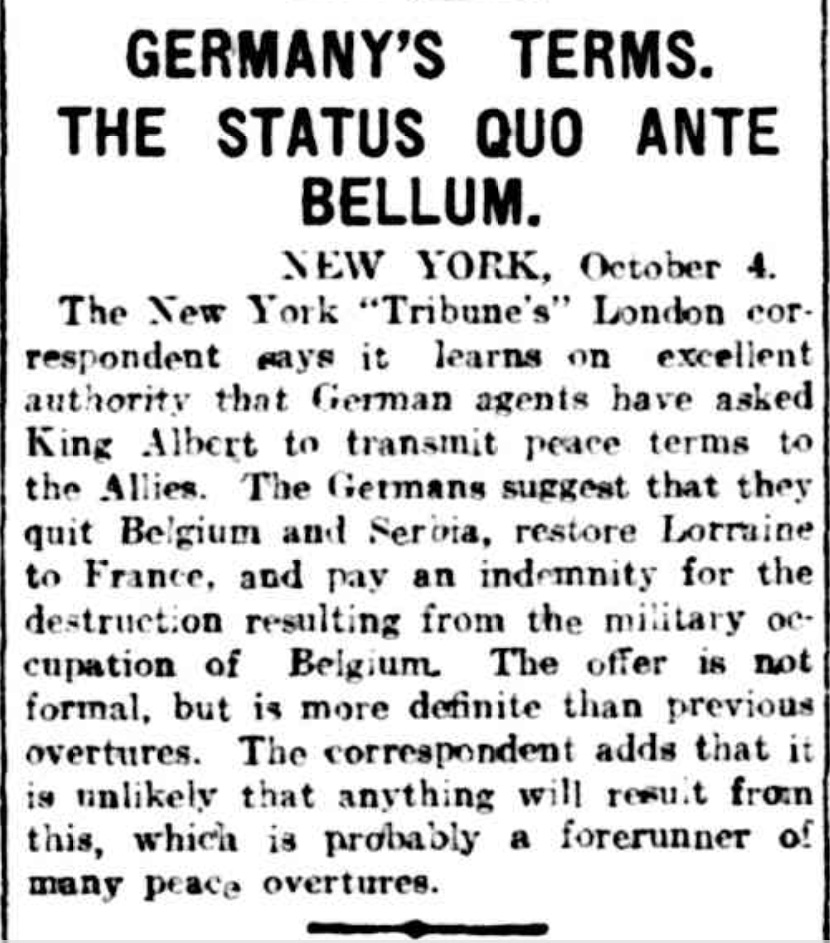
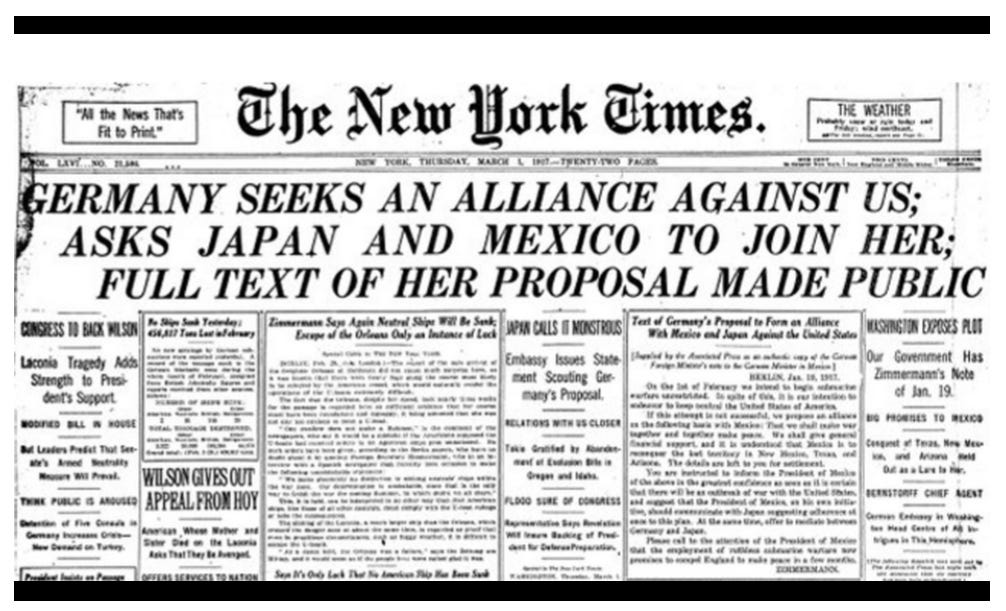

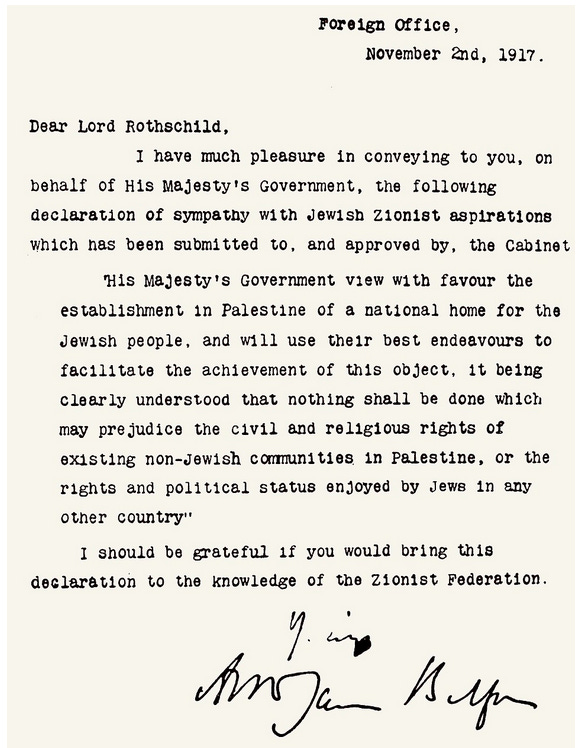
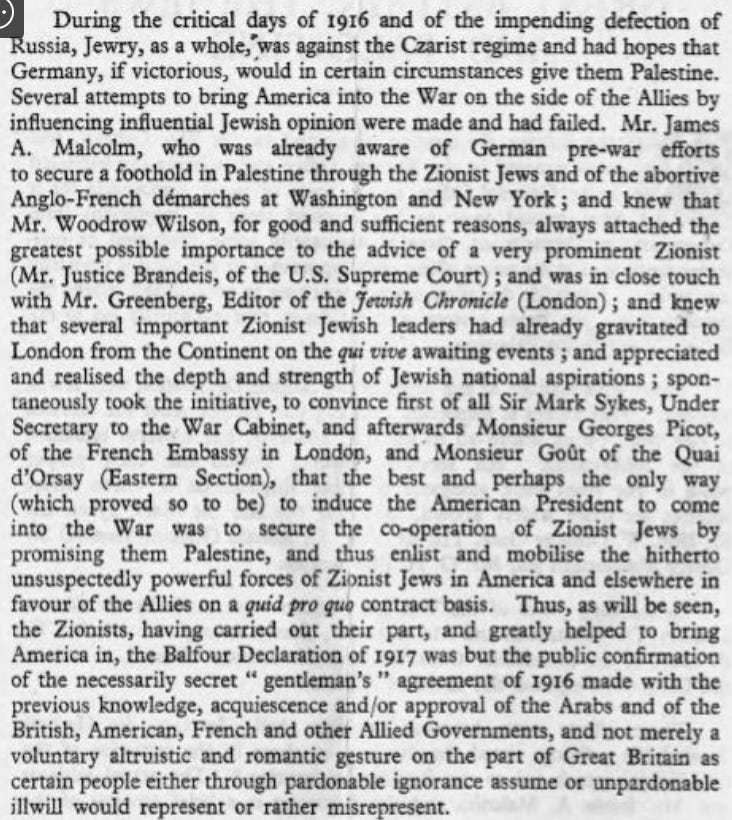


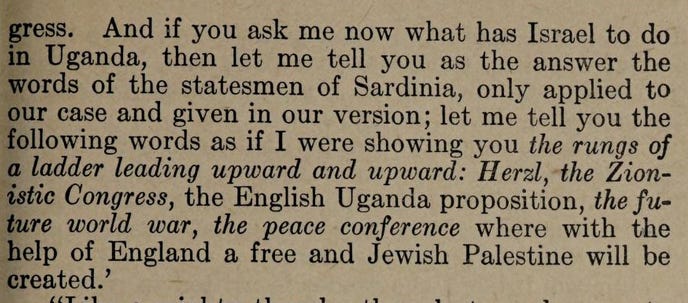
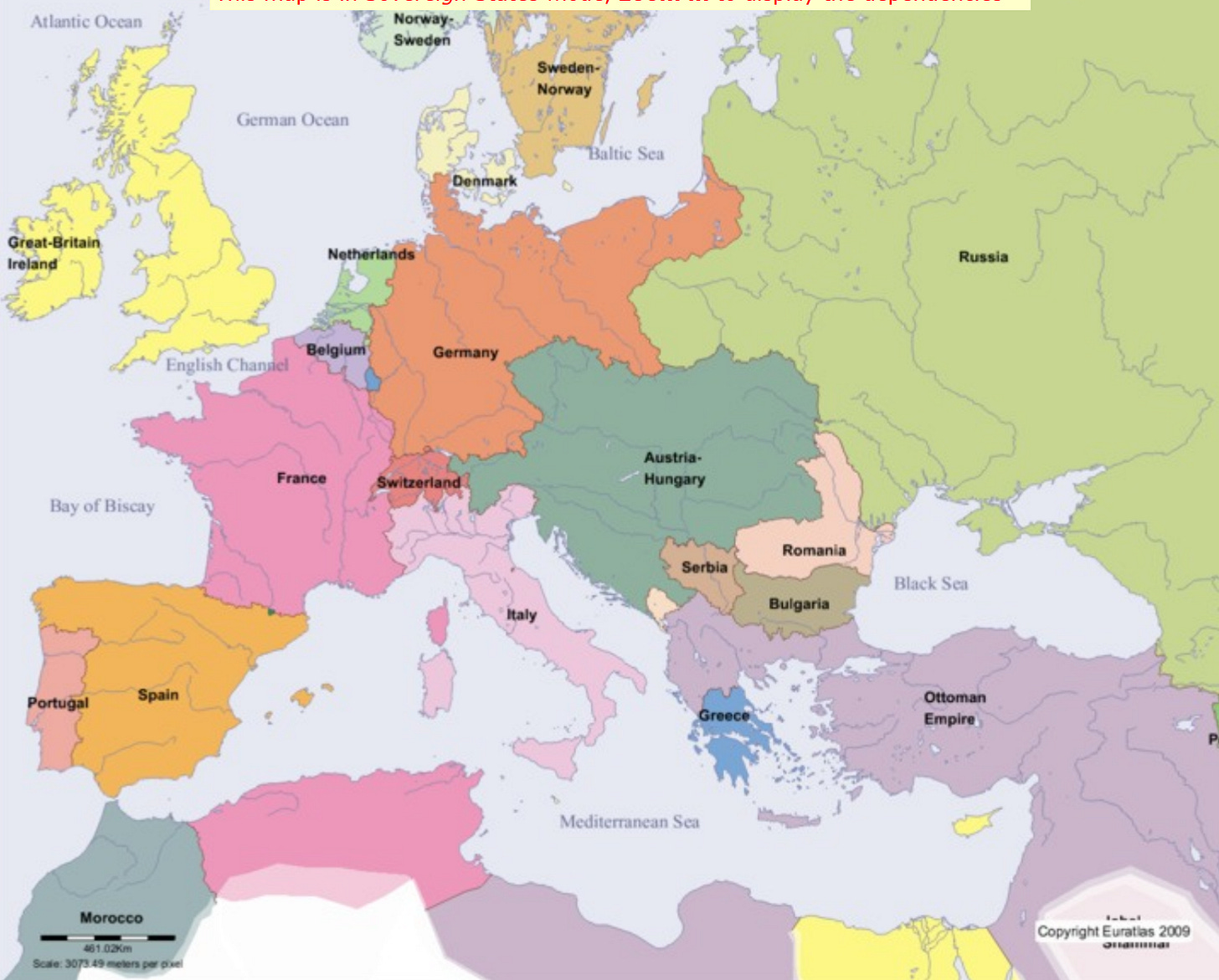
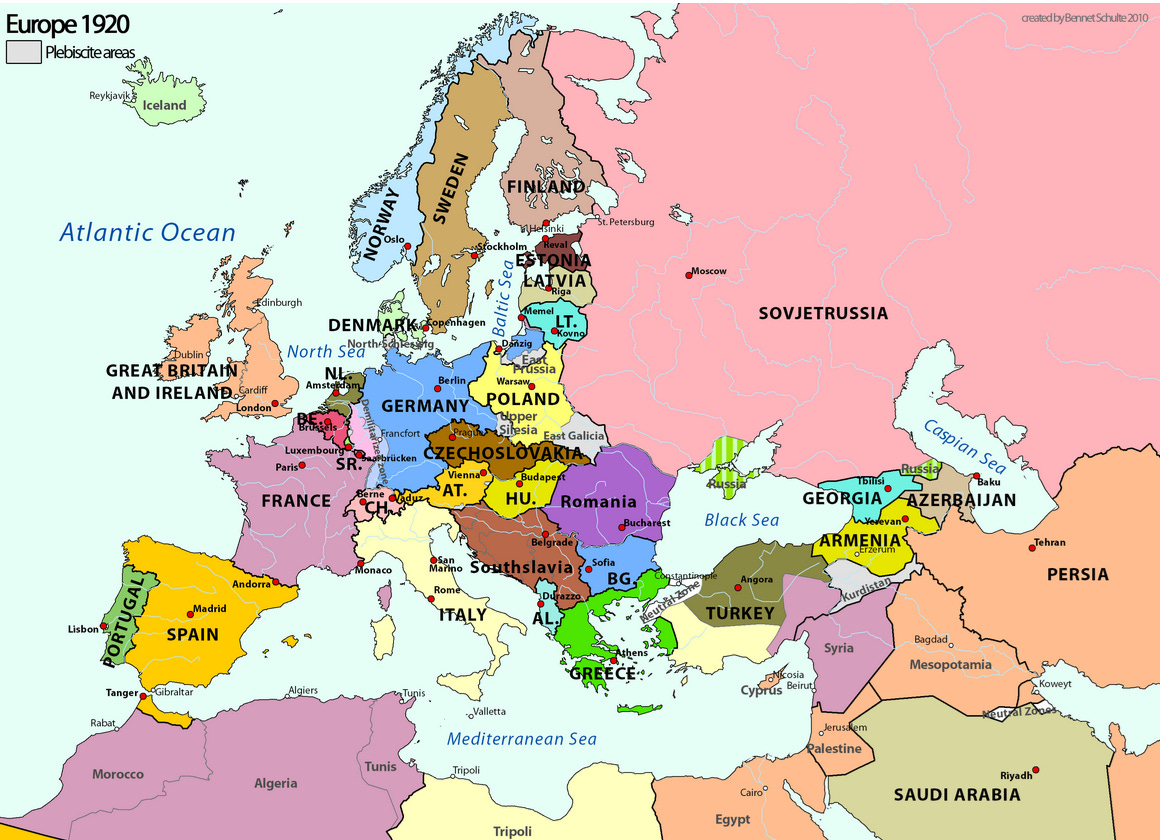
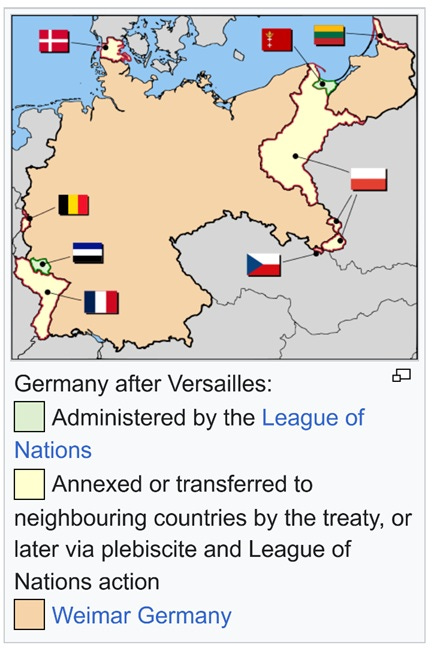
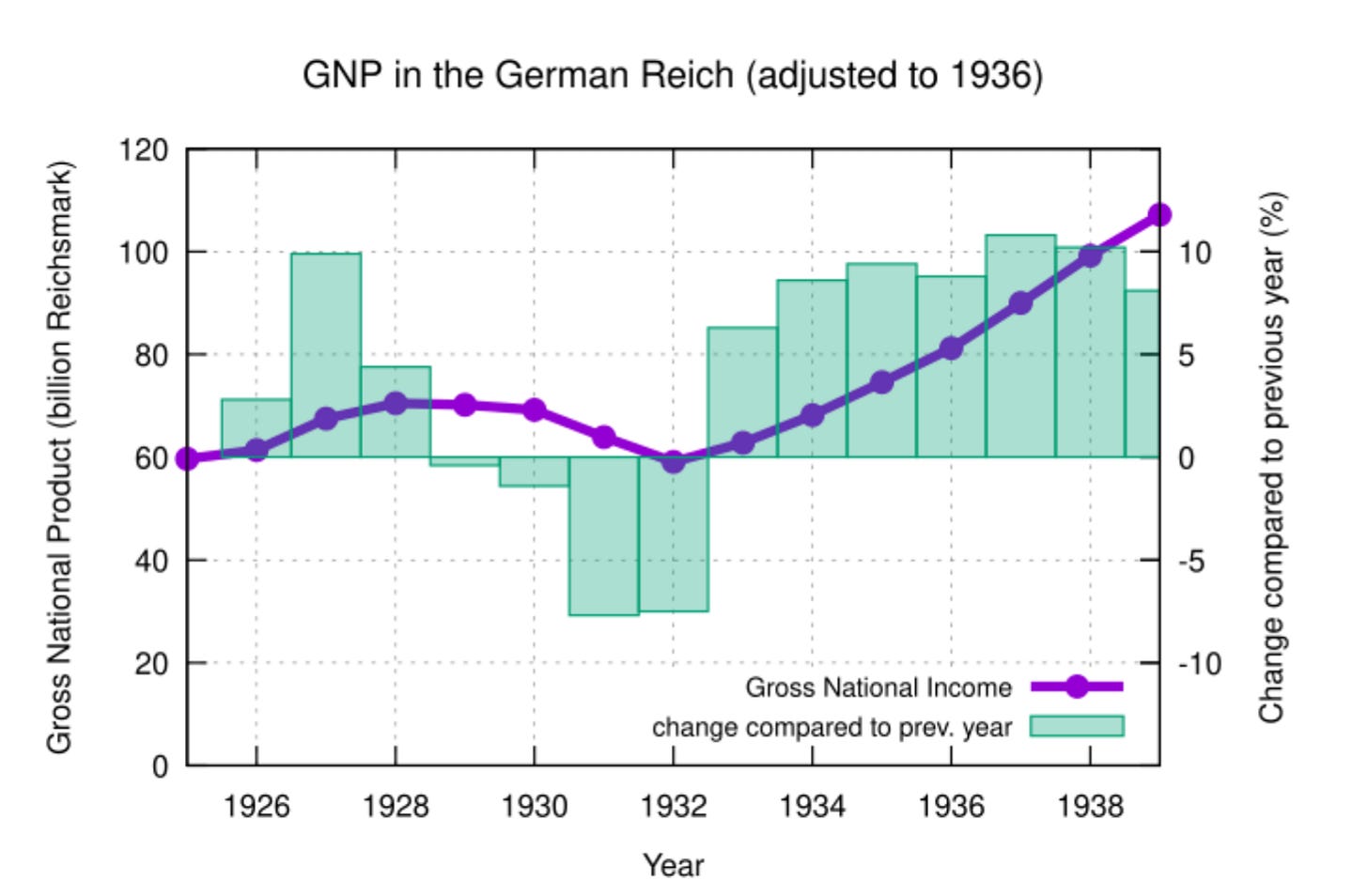


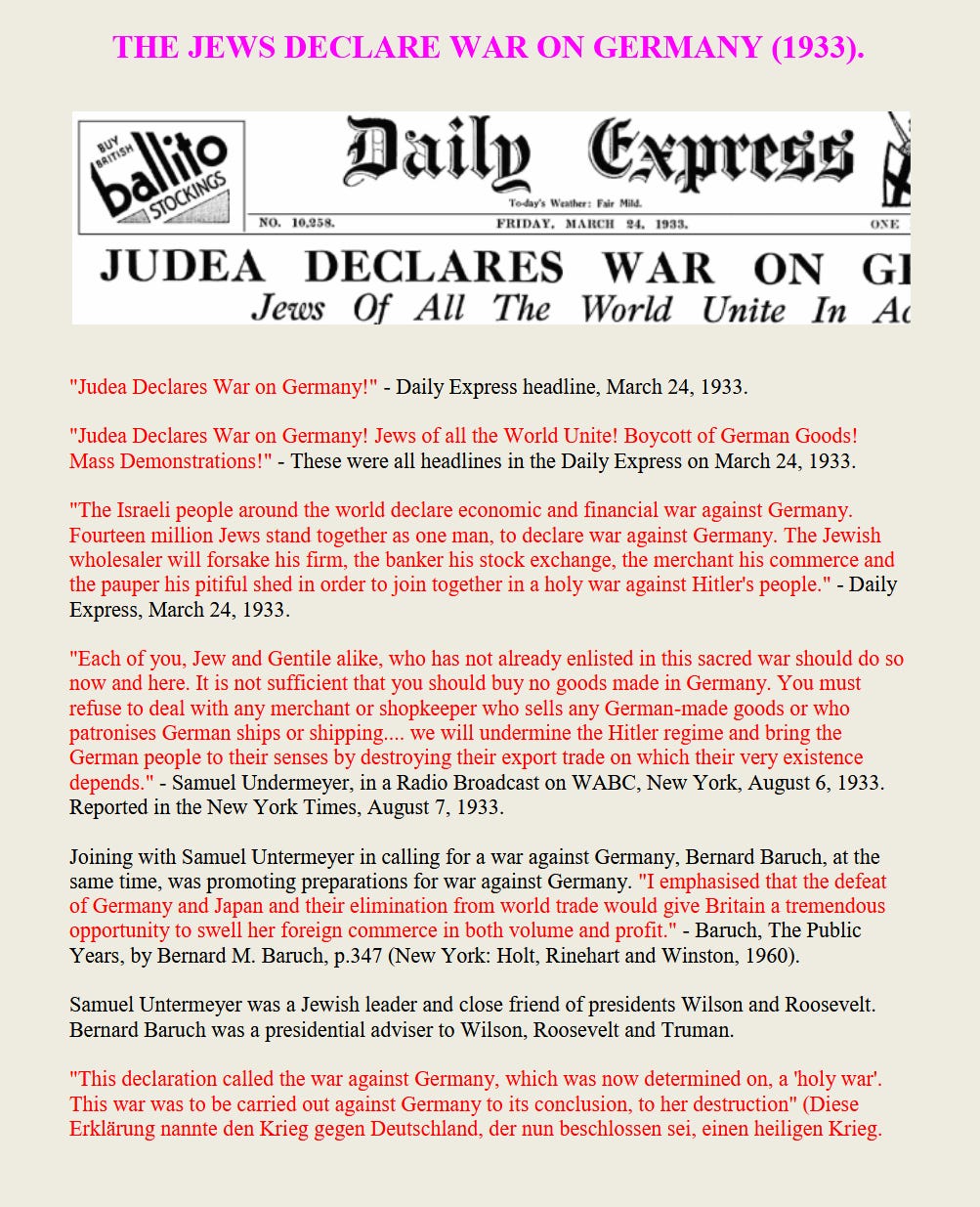


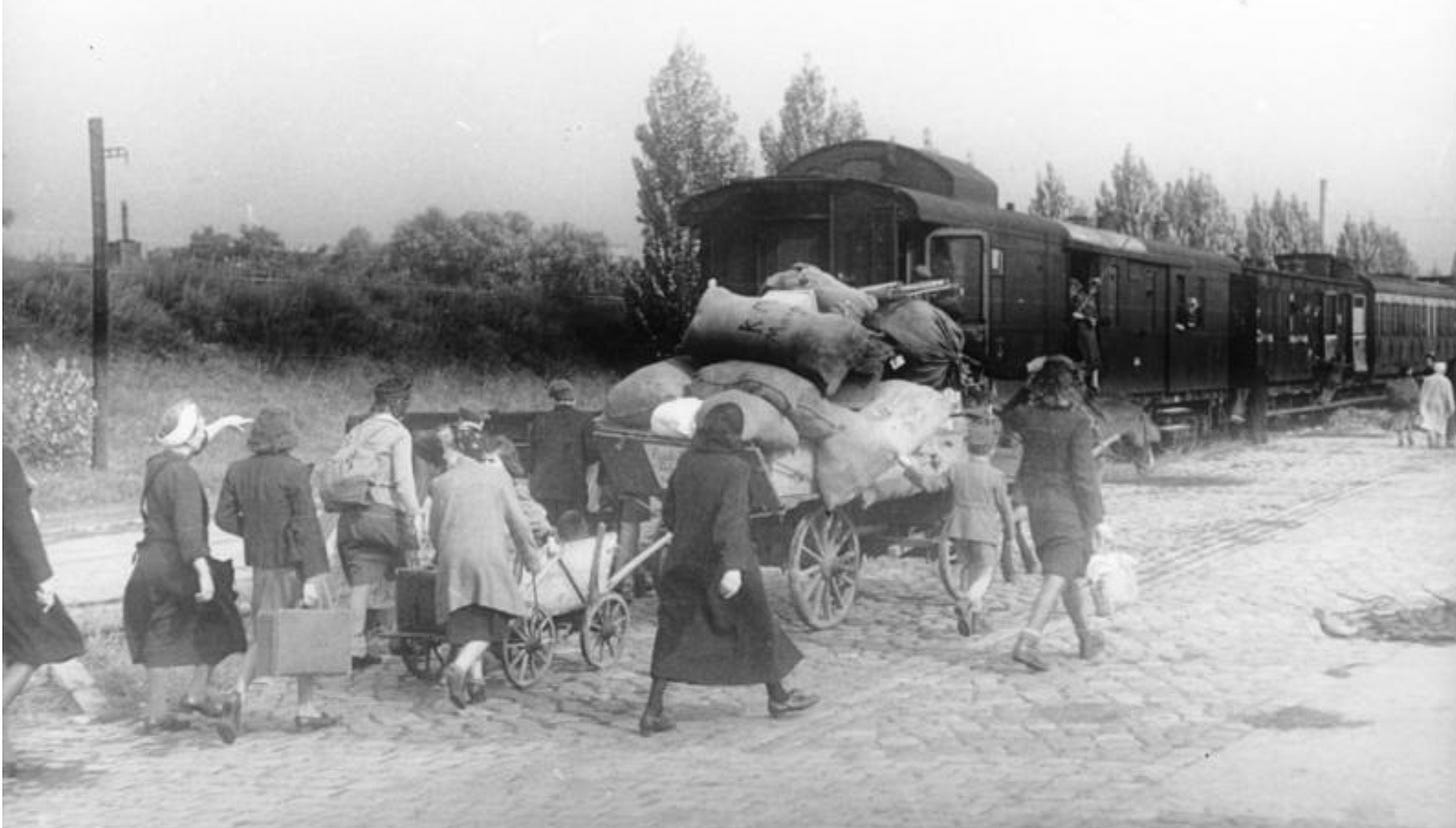
"The outbreak of war in 1939 was an UNFORTUNATE ACCIDENT caused by mistakes on everyone's part and was not a part of Hitler's plan" ??
Larry Romanoff - @moonofshanghai "Neither of the two world Wars was started (or desired) by Germany, but both at the instigation of a group of European Zionist Jews with the stated intent of the total destruction of Germany. The documentation is overwhelming and the evidence undeniable"
https://www.moonofshanghai.com/2021/05/larry-romanoff-what-part-will-your.html
Wow
And -- after all we have learned about choreographed lies and fabrications about heroic and professional Oct. 7 military breakout out of Gaza concentration camp — why is Hamas still described as “terrorist” ???
Hamas behaved professionally and well-disciplined in conducting a successful breakthrough military attack out of decades long open concentration camp.
Panicked and cowardly Israeli army, however, murdered its own citizens while as usual launching a coordinated fabrications about “beheaded babies and rapes” – ALL disproven by now.
Hamas party was democratically elected and represents wishes of Palestinian people.